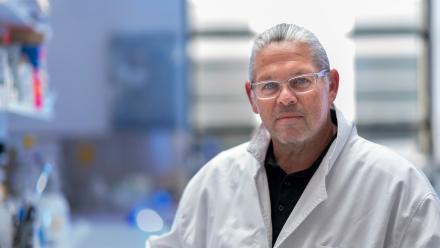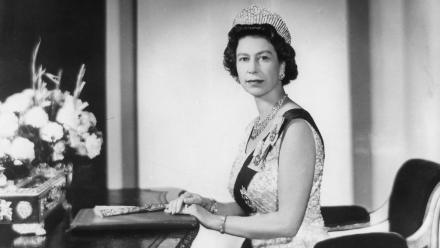Alexandra Clare LLB '12
I would never have imagined that just three years after graduating from the ANU College of Law, I would find myself in Iraq watching one of the worst humanitarian and displacement crises unfold before my eyes.
I arrived on 10 June 2014 - the day ISIS took over the city of Mosul. In the ensuing weeks, millions of people desperately attempted to flee the city for safety in nearby Erbil, where more than 500,000 displaced Syrians were already living as a result of the ongoing civil war.
What shocked me most was something quite unexpected - the broken humanitarian system. Hundreds of millions of dollars of aid was flooding into the country in an attempt to stem the crisis, yet more than 90 per cent of the population was living below the poverty line. Moreover, little thought was being given to long-term education and employment initiatives for youth - which I believed was essential, given the nearby security concerns. This led me to ask the questions - how do you connect people affected by conflict to jobs, while the economy around them is collapsing? How do you enable people to professionally progress when the average length of displacement is 26 years? And, what kinds of skills do people desperately want to learn, but can't?
At the same time, I was curious about how technology was changing the way we live and work. I was fascinated that coding boot camps were quickly upskilling people in the US and Europe, enabling them to work remotely and transcend geographic boundaries with just a laptop and an internet connection, filling the millions of software developer jobs worldwide.
So we decided to see if we could adapt this model of a coding boot camp to a war-torn area and, in doing so, create a sustainable model of education and employment not bound by geography that prepares people for the future of work. This was the beginning of Re:Coded - a non-profit organisation founded in May 2017 with the mission to prepare conflict-affected and vulnerable youth to enter the digital economy as software developers and tech leaders.
In two years, Re:Coded has grown from a humble idea into the largest coding boot camp for conflict affected and vulnerable youth across the Middle East and North Africa region. It prepares participants with no prior programming experience for developer jobs and triples their annual average salary. At least 40 per cent of these students are female, helping bridge the gender divide in technology.
This year, the organisation launched Re:Coded House, the first co-working space in northern Iraq, and Re:Coded Labs, a digital agency that employs some of the top talent coming out of our programs to work for clients worldwide.
More than a dozen of our alumni have launched businesses that are creating technology to solve some of the most pressing challenges in their communities - for instance, Azhar, a Syrian refugee living in Erbil who was inspired by his personal struggle to obtain his daughter's birth certificate from Syria to co-found Shiffer. Shiffer is a peer-to-peer shipping platform that revolutionises the way documents like birth certificates are delivered or obtained from hard-to-reach countries like Syria.
Since launching his startup, Azhar and his team have gone on to win the Startup Roadshow in Amsterdam and the MIT Pan Arab Startup competition in Amman, enabling them to build out their mobile app and help with hundreds of document deliveries across Syria.
Seeing this multiplier effect first hand inspires my co-founder Marcello Bonatto and me, reminds us what a huge privilege it is to work with people like Azhar and reinforces our belief that refugees and others affected by war are important and active members of any economy.
Alexandra Clare LLB '12, was honoured as the University's 2019 Young Alumna of the Year for her contribution to humanitarian advocacy through creating opportunities for youth in conflict-affected countries across the Middle East. She is the co-founder of Re:Coded, which runs coding boot camps and creates professional opportunities in the technology industry.
This Alumni essay was written for ANU Reporter.


